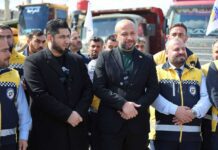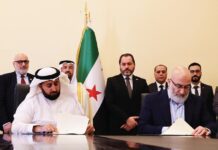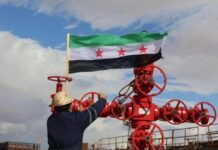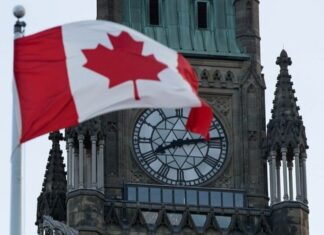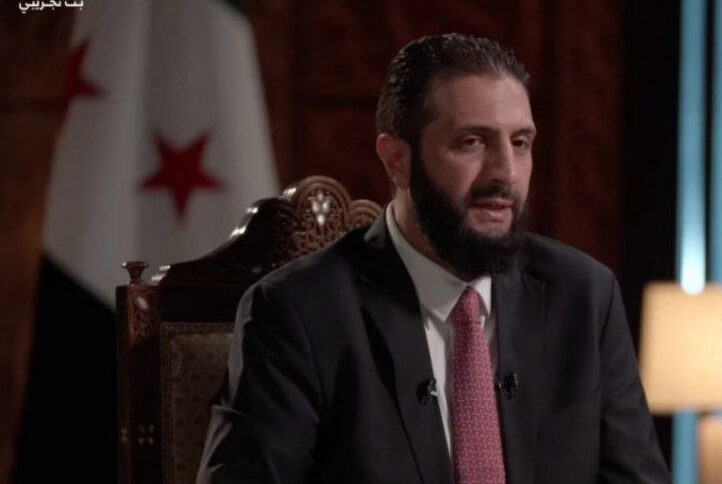 In his first interview with Al-Akhbariya since taking office, Syrian President Ahmad al-Sharaa outlined his vision for the country’s recovery and addressed a series of domestic and international challenges. From economic rebuilding and displaced persons to negotiations with Israel and shifting regional alliances, Sharaa framed Syria’s current phase as both transitional and decisive. He described the nine months since the fall of the previous regime as a historic opportunity to reshape Syria’s politics, economy and foreign relations.
In his first interview with Al-Akhbariya since taking office, Syrian President Ahmad al-Sharaa outlined his vision for the country’s recovery and addressed a series of domestic and international challenges. From economic rebuilding and displaced persons to negotiations with Israel and shifting regional alliances, Sharaa framed Syria’s current phase as both transitional and decisive. He described the nine months since the fall of the previous regime as a historic opportunity to reshape Syria’s politics, economy and foreign relations.
Sharaa emphasized reforming the judicial and educational systems is vital for economic recovery. “Reforming the judicial system directly benefits the economy, and reforming the educational system and developing human resources are the greatest capital for the economy,” he said.
The president noted that in the past nine months Syria had welcomed about 1,150 new production lines and restarted idle factories. He added that the Syrian Development Fund is currently prioritizing displaced persons, by refurbishing destroyed towns, and rural communities, offering loans to farmers to boost agricultural output.
Investment as an Alternative to Aid
Sharaa said reconstruction must begin with what is available but avoid reliance on “politicized loans.” Instead, he highlighted foreign investment as key to stability and job creation. He argues Syria’s geography positions it at the heart of global trade and communications, providing security to supply chains and global commerce with both land routes and 6,000 kilometers of internet lines linking East and West.
“The movement of investment and capital within Syria is reflected in all sectors, and Syria’s openness to foreign investment also provides it with foreign markets,” he said, pointing to recent international support. Sharaa added that the US has expressed interest in investing.
Security Talks and Shifting Alliances
On regional security, Sharaa confirmed that negotiations are underway with Israel over a return to the terms of the 1974 disengagement agreement. While stressing Israeli airstrikes on Syrian sites were “unjustified,” emphasizing Syria’s commitment to maintaining stability along its borders.
The fall of the Assad regime shifted alliances, cooling ties with Iran while slowing strengthening connections with the West, Russia, Egypt and Lebanon. Sharaa said Syria managed to “reconcile global contradictions” through “equal distance” diplomacy since last December’s liberation, which he called a turning point for the region.
Internal Disputes and National Unity
Sharaa addressed tensions in Suwayda between Druze and Bedouin communities, noting mistakes by all sides. He said the government intervened to halt bloodshed and formed fact-finding committees to ensure accountability. On northeastern Syria, he rejected calls for decentralization or partition, reiterating that “Syria will not give up a single inch of land.” Negotiations with the Syrian Democratic Forces (SDF) have focused on integrating Kurdish forces into the national army, but he acknowledged delays in implementation.
Toward Political Pluralism and Media Freedom
The President pledged to uphold broad media freedoms while ensuring laws guide political activity. “We are not living in a time when the president decides everything, and I don’t want Syria to be like that,” he said. He argued that pluralism and diverse political opinions are natural for Syria’s future.
Ending on a hopeful note, Sharaa expressed optimism about gradual improvements. “What we need is patience and trust, and to be objective in our presentation,” he said.

